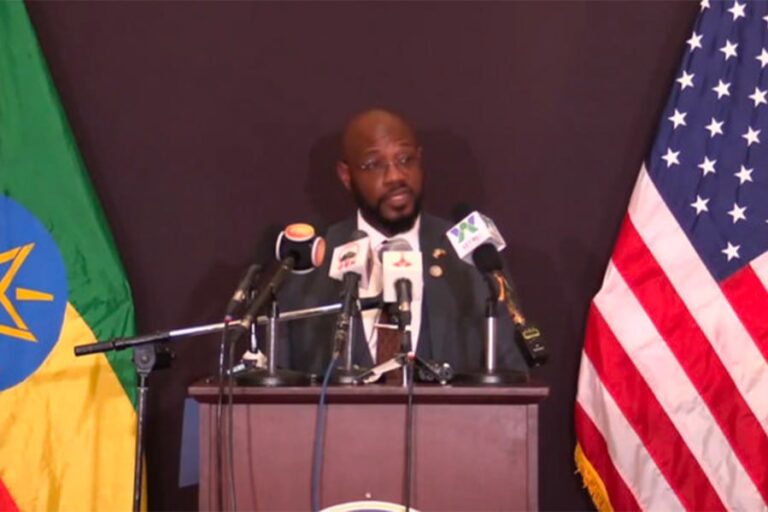For more than a year, 272 United Nations peacekeepers from Pakistan have worked tirelessly to safeguard 300,000 people from catastrophic floods. As their mission comes to an end, each peacekeeper was honoured with UN medals for their exceptional service in Bentiu, Unity State.
Their work in building and maintaining dikes has kept 5,600 square kilometers of floodwaters from engulfing the Bentiu Internally Displaced Person camp, which shelters hundreds of thousands of people, as well as the surrounding area, infrastructure, and service providers.
The unit received a citation for outstanding performance, and 23 blue helmets were awarded the prestigious Force Commander Commendation Card.
Major Saad Sultan, operation officer and recipient of the Force Commander’s Commendation expressed gratitude for the recognition.
“We worked day and night, often at personal risk. Being recognized with the UN Peace Medals and the Force Commander Commendation Card is a great honour that will always remind me of our service to humanity in South Sudan,” he said.
Climatic shocks have wreaked havoc and the resultant floods have erased villages and submerged supply routes in every direction. A breach of the dike system would cause catastrophe for the high concentration of people left with no choice but to seek refuge in the sanctuary created by the Pakistani peacekeepers.
An incident in October 2022, when a rupture in the western dike wall threatened disaster, underscored the importance of their work. Immediate and cooperative efforts saved the camp that night. To prevent such an event from occurring again, blue helmets now monitor over 80 kilometres of dikes day and night.
The current unit, building on the work and learnings of previous Pakistani blue helmets proudly report that under their watch, there have been no breaches in the dike system since October 2022.
Major Hina Naseer, the contingent doctor was proud of the legacy that Pakistani peacekeepers past and present have left in Bentiu.
“We safeguarded thousands of lives from floods, leaving our mark on Bentiu forever,” she said.
UNMISS Force Commander, Lieutenant-General Mohan Subramanian, who attended the ceremony to personally commend the men and women of the Pakistani unit, had only words of praise.
“Their efforts, serving in one of the toughest locations, have made immense contributions through effective, economical, and timely completion of critical engineering projects. These altruistic acts speak volumes of their professional commitment.”
Despite the compounded challenges of climate disasters, food crises, conflict, and disease outbreaks, the dedication of the Pakistani peacekeepers remains unwavering. Their efforts have provided a semblance of normalcy and hope to the residents of Bentiu, showcasing the vital role of UN peacekeeping missions in addressing both environmental and humanitarian crises.
As this unit prepares to welcome the next contingent of Pakistani engineers, they leave behind a legacy of safety and resilience in Bentiu.
Distributed by APO Group on behalf of United Nations Mission in South Sudan (UNMISS).



